Last Wednesday, mouthwatering kimchi and sweet baklava began a conversation about plant-based protein worth continuing. These delicious foods were a part of the Global Veg Fest, an event organized by Veg Out (a campaign started by the Wes Real Food Challenge) and Bon Appétit (Wesleyan’s dining service company). At this event, a wide array of vegan and vegetarian food inspired by different countries’ cuisines was served in Usdan. Student groups such as Shakti and the Korean Student Association submitted recipes to inspire menu items. A small cookbook was made from recipes by the African Student Association, Hong Kong Student Association, Ujamma, the Whisk and Shout Food Blog, and Indonesian Society. Not only was there student involvement, but a local Connecticut farmer and musician joined the party!
Here are just a couple of the bites: falafel, olives, and sesame hummus from the sandwich station, a potato and a spoonful of qabooli biryani from classics, soy tiramisu, baklava, bundt cake, and chocolate bark from the desserts.
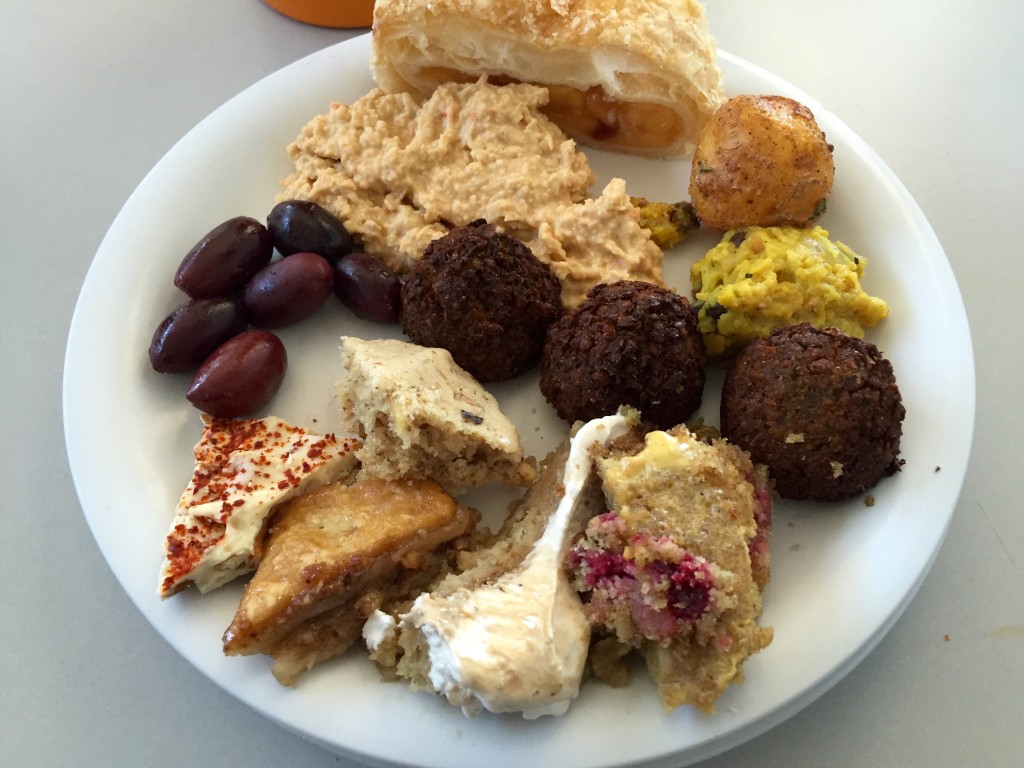
Photo by Eliza Wilkins
Desserts stole the show. The cranberry almond bundt cake was just the right combination of tart and sweet in a moist, glazed cake.

Photo by Alex Fireman
Many of my dairy-loving friends couldn’t believe the tiramisu was vegan and praised its sweetness and creaminess.

Photo by Alex Fireman
Here’s a balanced plate of qabooli biryani (lentils, rice, and yogurt), kashmiri dum aloo (potatoes seasoned with yogurt and spices), bimbibap (Korean rice), kimchi (fermented cabbage), zucchini, corn, and dubu jorum (spicy Korean tofu sourced locally from the Bridge!).
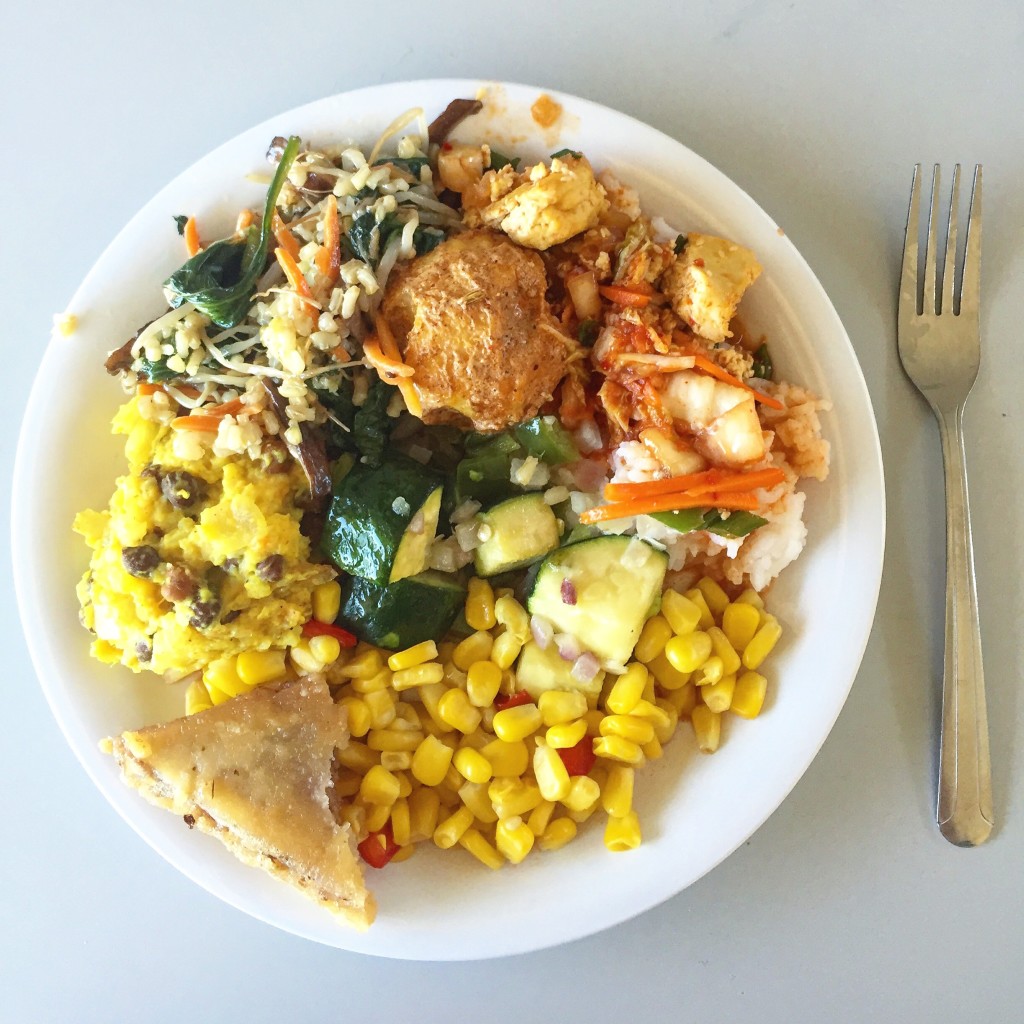
Photo by Alex Fireman
Highlights of the meal (besides dessert) were the kimchi and the qabooli biryani. My friend who is a Korean food connoisseur, and notably hard to please, approved of the kimchi. The kimchi was crisp, sour, and refreshing. The garlic really came through and the tamari made it just salty enough. The qabooli biryani was comforting and smooth. It could have used just a little bit more spice, but it was warm, earthy, and satisfying.
My only regret from the meal is that I didn’t have room for the pizza! The brussels sprout and guac pizza looked especially interesting…hopefully there will be another chance to try it.
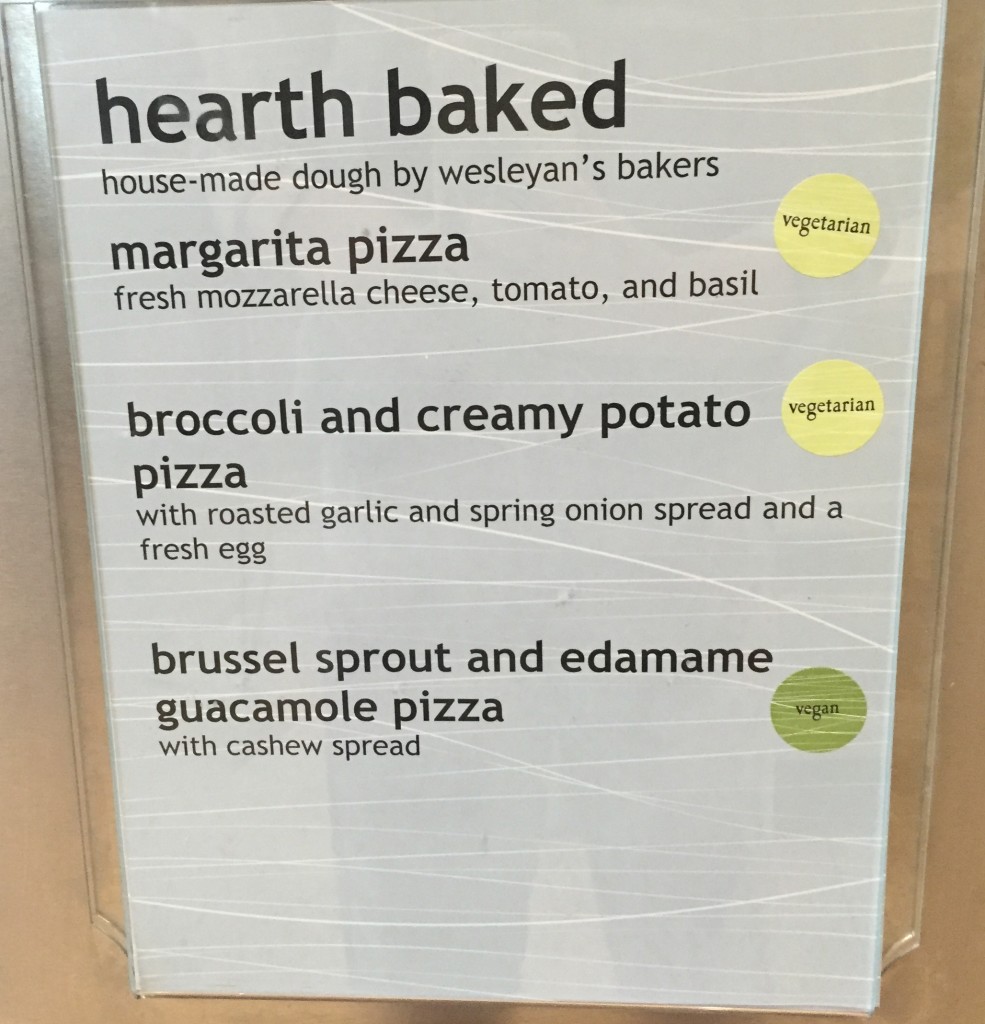
Photo by Alex Fireman
I filled up on this salad instead:
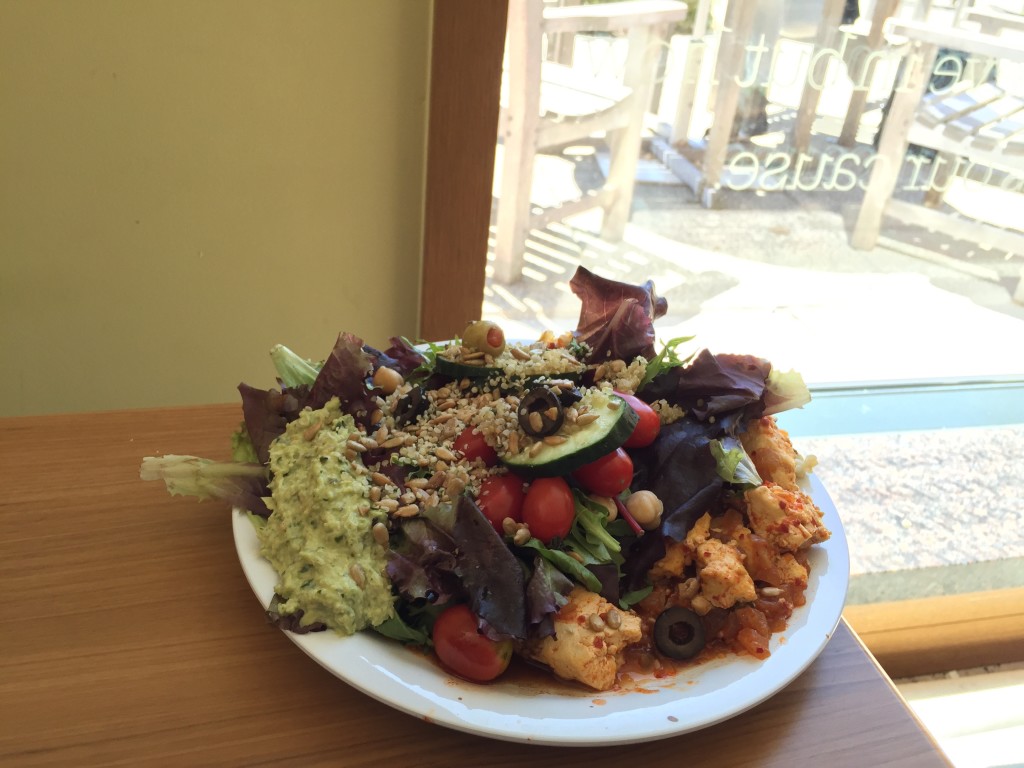
Photo by Eliza Wilkins
The live music made the event special.

Photo by Alex Fireman.
Gabe, a farmer from Forest City Farms, came with greens and peppers to sell. He is running a CSA over the summer, so look into that if you’ll be in town during the summer months (email cpatel@wesleyan.edu if interested).
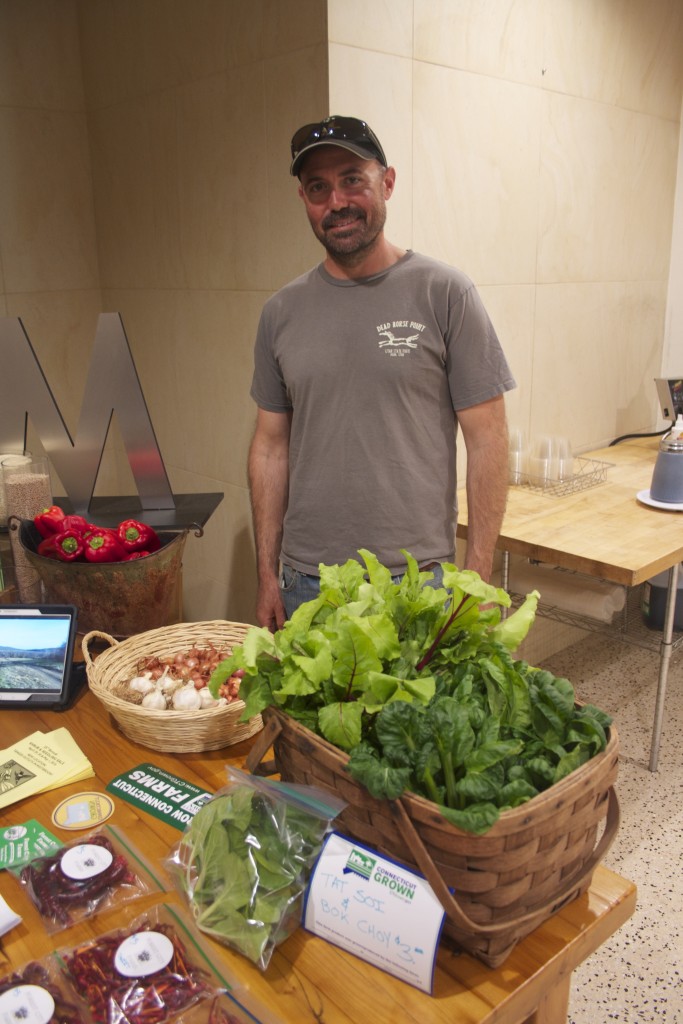
Photo by Alex Fireman.
Let’s Talk
Though I was thrilled by the animal protein-free meal, not everyone on campus agreed. Some students were unhappy with the lack of animal proteins in Usdan and turned to social media to express that. It would not be productive to hash out all of the negative Yik-Yak commentary about the event in this article (why respond to the conversation that wasn’t productive in the first place?). I do want to encourage, however, that the conversation about this event continues offline and in person. Talk to your friends, professors, coaches, family, and random people on the street about what food means to you, and why or why not you support these kinds of initiatives on campus.Talk to persons from Veg Out (meeting times vary, so check with Cassia Patel or Ingrid Eck) and Wes Real Food Challenge (meetings for RFC are pretty consistently 5:00 on Thursdays)! They’ve done a lot of research — on the meat industry, factory farming, and health and nutrition concerns surrounding a plant-based diet — that they would love to share. If you’re concerned that meatless Usdan could be a weekly reality, talk about that too. Or if you’re just curious and want to learn more about food justice issues, pick up a zine!
Think about Meat
Talk to your friends about how you felt about there being no animal-based protein in the cafeteria and think about the history of meat in America, especially beginning in 1950s. If you consider animal-based protein a staple at every meal, ask questions about why you think that.
Open Minds, Full Bellies
Above all, remember to approach this topic with an open mind and an awareness of the broader world. It seems irrational to shut down an attempt to try something new in the cafeteria, just because the lentil sloppy joe caught you off-guard. Think about what could be improved if an event like this were to happen in the future — maybe an inclusion of cashew mac & cheese? Or Stephanie’s vegan apple crisp? This event was not an effort to impose a lifestyle or take away choices, but rather to celebrate food loaded with veggies and plant-based protein. Veg Out sought to encourage healthy, mindful eating in the future and shed light on many ways other countries eat (a lot less meat than America). This is a worthwhile conversation to continue: let’s keep discussing, learning, asking, and thinking out loud.


